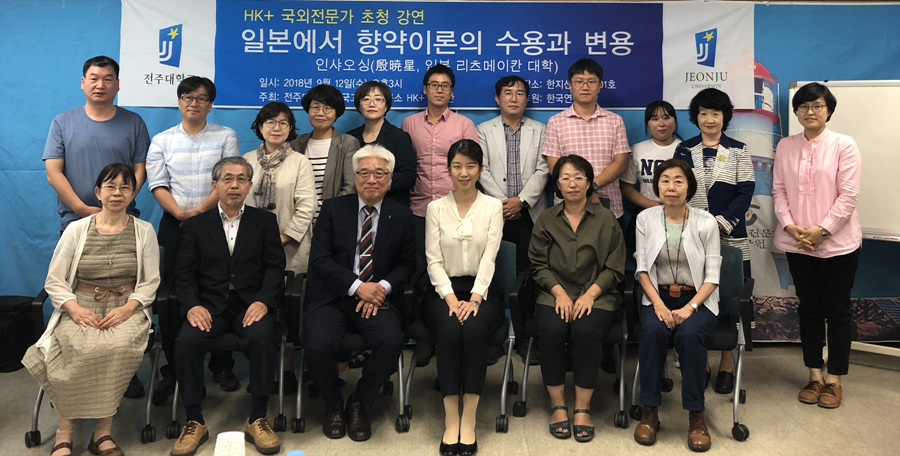News
| Jeonju University, Academic Exchange Related to History of Confucian Culture with Five Universities in Japan |
|---|
| 작성일: 2018-10-19 조회수: 559 작성자: International Center |
첨부 :

|
|
Jeonju University, Academic Exchange Related to History of Confucian Culture with Five Universities in Japan
On the last 12, the HK+ research group in Jeonju University Korea numismatics research center invited a professional researcher Insyaosing(殷暁星) from Ritsumeikan University(立命館) in Japan to present a speech with the topic of ‘Adoption and Transformation of Hyang Yak Theory in Japan - from Modern to Post-modern’ in Jeonju University Korean Paper (Hanji) center.
In the speech, the researcher Insyaosing lectured mainly on how Hyang Yak Theory represented by 「Yeossi Hyang'yak (呂氏鄕約)」 was adopted in Japan and was applied to people’s lives through modern and post-modern times.
After the speech, Jeonju University and the Japanese Confucian culture researchers conducted Korean-Japanese Confucian cultural and academic exchanges while presenting papers and discussing them. From Japan, Fujimoto Seijiro (Emeritus Professor, National Wakayama University), Sawayama Mikako (Researcher, National Okayama University), Oseugi Yuka (Professor, Daito Bunka University), Ganajeu Hidemi (Professor, Ritsumeikan University), etc. had participated.
Korea numismatics research center will continue to hold academic exchanges with Ritsumeikan University and researchers related to Japanese history in the wake of this academic exchange.
Korea numismatics research center in Jeonju University was established in 2011 and has been carrying out researches such as the cooperative translation project conducted by Institute for Translation of Korean Classics and the project for basic data of Korean Studies conducted by the Academy of Korean Studies. Moreover, in 2018, it was selected as a HK+ support project and is studying the agenda of ‘Decontamination of Confucian culture, Anthropology of coexistence and future community.’
|


